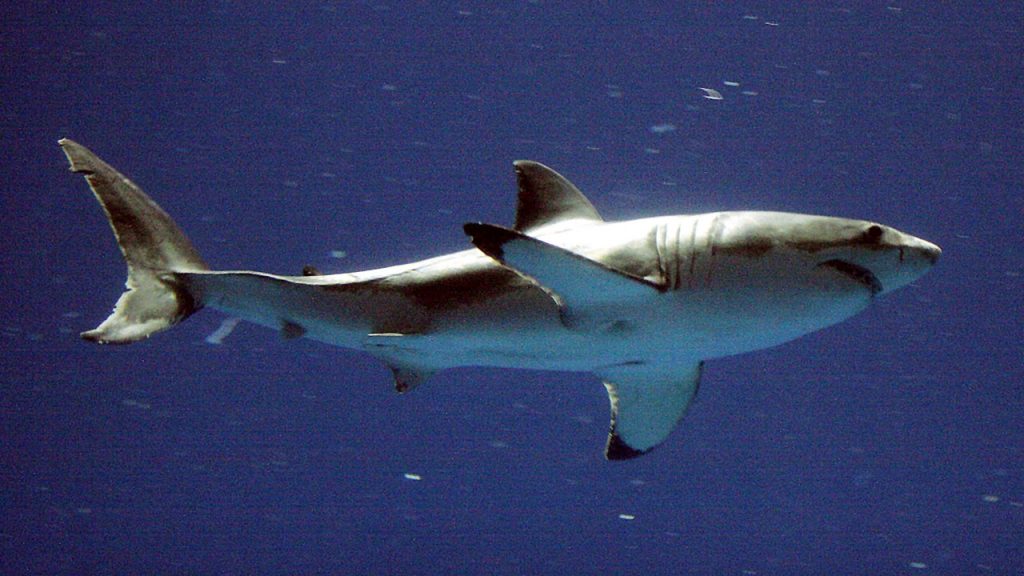Scientists at a Boston aquarium are warning beachgoers to be on the lookout for white sharks this holiday weekend after signs of shark bites were observed on marine mammals. Memorial Day weekend marks the unofficial start of summer in New England, making it important for people to be aware of the sharks, also known as great whites. A minke whale with a white shark bite was recently reported off Chatham, Massachusetts, and this is the time of year when scientists expect to see the sharks heading to inshore waters to hunt seals. Although white sharks have not been spotted yet this season, their presence is expected, so it is important for people to review shark safety guidelines and be “shark smart.”
Beachgoers are advised to avoid shallow waters where seals are present or schools of fish are visible to reduce the risk of encountering a shark. People can report sightings of white sharks using the Atlantic White Shark Conservancy’s Sharktivity app, which aims to track and monitor shark activity in the area. The increased sightings of white sharks have become a topic of conversation in New England in recent years, and efforts are being made to better track and understand the northwest Atlantic white shark population. The conservancy recently deployed its second camera tag on a white shark off the coast of South Carolina, which will provide valuable insights into the behavior and movement patterns of these ocean predators.
One of the critical components in understanding white shark populations is the use of camera tags, such as the one deployed by the conservancy on a female white shark off the South Carolina coast. These tags allow researchers to see the ocean from the shark’s perspective, providing valuable data on their behavior and interactions with the environment. The conservancy worked with charter captain Chip Michalove to attach the camera tag to the white shark, giving scientists a unique opportunity to study these creatures up close. Michalove expressed his surprise and excitement at being able to apply this technology to a great white shark, showcasing the ongoing efforts to better understand and protect these apex predators.
The increased sightings of white sharks along the East Coast have raised awareness about shark safety guidelines and the importance of reporting sightings to help researchers track and monitor these animals. By involving members of the public in reporting shark sightings, scientists can gather more data on the presence and movement patterns of white sharks in the area. As the holiday weekend approaches and more people head to the beach, it is crucial to remain vigilant and follow safety guidelines to reduce the risk of encountering a shark. With the summer season in full swing, being “shark smart” and taking precautions can help ensure the safety of both beachgoers and marine wildlife.
The efforts to track and monitor white sharks along the East Coast are part of ongoing research to better understand the behavior and ecology of these ocean predators. By deploying camera tags and utilizing technologies like the Sharktivity app, scientists can gather valuable information on the movements and interactions of white sharks in their natural habitat. As sightings of these apex predators become more common in New England, it is important to raise awareness about shark safety and the significance of reporting sightings to help protect both sharks and beachgoers. By working together with researchers and conservation organizations, members of the public can contribute to the ongoing efforts to study and protect white sharks in the Atlantic Ocean.


